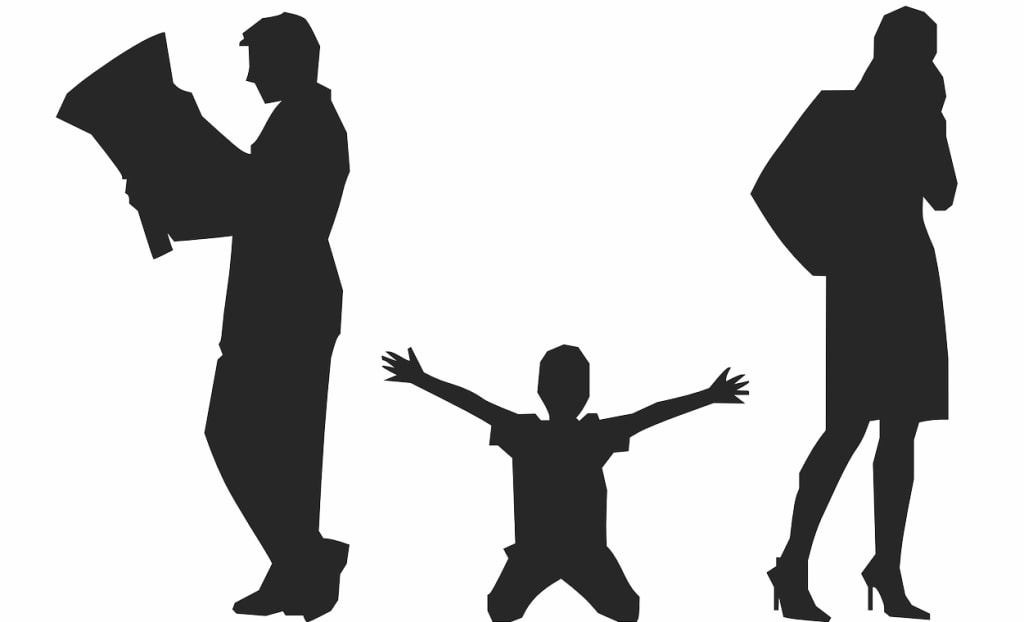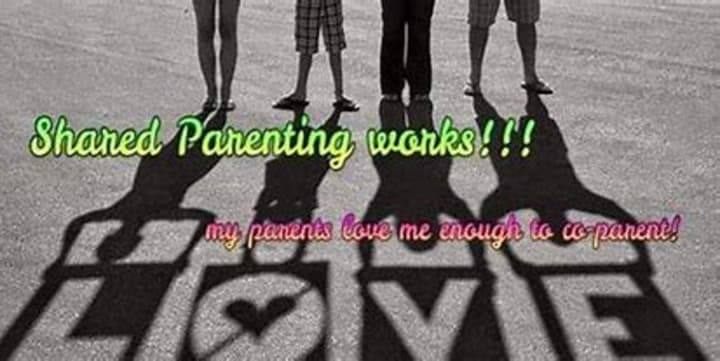Positive Parenting After Divorce
Tragically adults often use children as pawns

After adults divorce or separate, they often engage in 'get even' tactics against each other with children becoming objects of manipulation and revenge. Little thought is given to the effect of their behavior on a child's emotions or what their son(s) or daughter(s) are being deprived of. The sense of betrayal and anger spills over with the desire to strike back becoming paramount. Parent's reactions become driven by raw emotion rather than rational thought and children are caught in the crossfire. Acts of revenge have become increasingly volatile in the last decade and it has become commonplace to see or read about a murder or murder/suicide of the custodial parent or the children they had together.
My first experience witnessing divorced parents taking out their anger on each other came about through my observing a couple standing on the sidewalk in front of the house across the street arguing loudly with the child, a boy of around four or five years old, watching. Mom made jabbing motions with her forefinger, yelling at her ex that he obviously didn't love his son or he would have shown up the previous weekend. The boy's father had just dropped by three days later unannounced to give an explanation. Three days is a lifetime to a young child.
Mom and dad didn't care that their son was privy to the fight
Dad knew he had to work that Saturday. He could have called his ex-wife, told her about the sudden change in his schedule, and asked if they could make different arrangements. Perhaps she might have allowed him to take their son on Friday for the evening, then return to pick the child up again after clocking out Saturday and keeping him home until sometime Sunday. Dad could have explained things in person or on the phone to his son. Furthermore, he could have let his son know extra money would help provide things like clothing, a book they could read together, or pay for future activities. Overall children are usually amenable and understanding.
Mom, on the other hand, was driven by a need to get even, focusing on the inconvenience to herself when her ex-husband failed to make contact because she was left to cope with her son's hurt and disappointment alone. Accusing the child's father of not loving his son gave her a sense of vindication. Dad, by just not bothering to show up at all or call, left both his ex-wife and son high and dry. Failure to contact the child's mother or tell his son why he wouldn't be taking him the past weekend could potentially have made the child believe what his mother said. The child was caught in the middle of a battle of words, accusations, and thoughtless actions by both parents.

Some custodial parents cut a child's ties to the other parent
One major complaint repeatedly made by non-custodial parents is that the other parent, or the grandparents, refuse to let them see their children. Custodial parents have been known to leave home before the other parent is due to show up or don't answer the door. Others move to a new address or leave the area without notifying anyone, including the courts, as they are required to do. Other tactics include telling non-custodial parents a son or daughter is sick, at a peer's birthday party, or otherwise engaged away from home. Not only is the missing parent being deprived of being involved with children as they grow up, children are left without an explanation or are led to believe the non-custodial parent has abandoned them by the parent they live with, leaving them to grapple with a perceived belief that the missing parent's absence is somehow their fault.
Children struggle to adjust to a new role in the family structure
With their lives in disarray, children of all ages are faced with having to adapt to different family dynamics where parents live in separate homes and don't want to be together as a couple any more. The adjustment becomes even harder if parents are constantly fighting over them. “Who should they love, is it okay to love both mom and dad, and what if one parent gets mad because they don’t feel they are loved equally?” When only one parent is in a child's life another question becomes, are they to blame? This make life even more difficult for children at a time when they should be focusing on friends, school, and enjoying their childhood.
Children of divorce often grow up lacking socio-emotional skills
The lack of a solid and positive connection with both parents has been shown to impede a child’s ability to build or sustain strong, positive, personal or romantic relationships as teens or adults. Suicide and domestic violence are prevalent among children exposed to a combative environment between parents, and among children who had no relationship with a parent at all. It is not uncommon for pre-teens, teens, and even young adults to use drugs and alcohol as a coping mechanism. Mental health issues related to the emotional aspects of divorce, including guilt and depression, can lead to dire and dangerous consequences if not addressed professionally.

Parents should focus on children first not their own emotions
Estranged adults forget they were once engaged in a loving relationship and their children were born as a result of that connection, regardless of how their feelings changed towards each other over time or what caused the break up. Children need the emotional support of both parents as well as the talents and perspectives mom and dad can bring to the table as they grow up. It is up to both parents to ensure children have the best of both worlds and an opportunity to grow into emotionally healthy, happy, and successful adults.
- Try and find common ground.
- Don’t use children as pawns.
- Work as a team to provide guidance, structure, and peace within separate homes.
- Attend children’s social, extracurricular, or school activities together, or at least acknowledge the other parent’s presence with a nod or a wave.
- Tell children it is okay to love both parents; that they are not to blame for the separation or divorce, and are loved by both mom and dad.
- Let children understand verbally that they are an integral part of both parent's lives.
- Don't deprive children of having a relationship with the non-custodial parent and being able to love them.
- Answer any question a children ask about the divorce or anything related to the divorce.
- Work on dealing with the emotions resulting from the end of the relationship to become the best parents possible to your children. . .together.
About the Creator
Jerrie DeRose
Willow Tree Early Ed Team social media sup; retired Early Childhood Education Consult; 2017 Mainstream Coalition intern; grassroots polit/fam advocate; Parent support tech MH center, Moderate unaffiliated, 16 yrs content writing; Army Vet






Comments
There are no comments for this story
Be the first to respond and start the conversation.